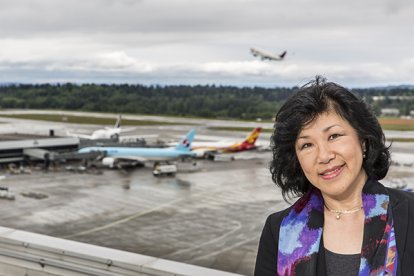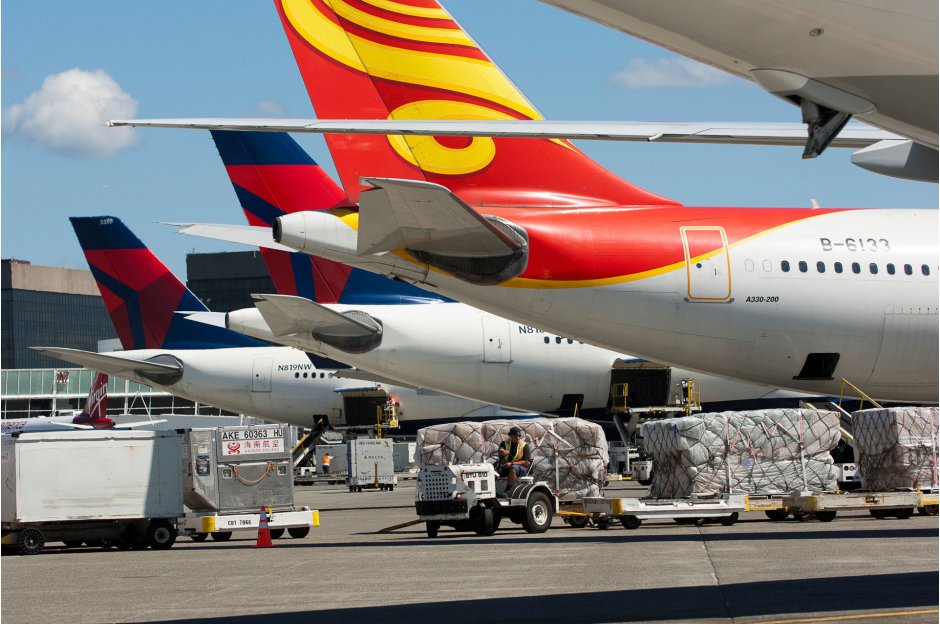When Xiamen Airlines touched down in Seattle for the first time late last year, it marked another important milestone in a decades-long strategic focus for the airport, Kazue Ishiwata has told Routesonline.
This is the second time that Seattle has secured a Chinese airline for its first US route under the stewardship of Ishiwata, senior manager - air service development, a Japanese native but adopted Seattleite who joined the airport 28 years ago.
It could now open the way for more US routes for Xiamen Airlines, a subsidiary of state-backed China Southern Airlines, connecting to the wealthy city of Shenzhen.
 “When I first took the leadership role of our airport's air service development nearly two decades ago, I was asked which market is the most important,” she said. “Without hesitation I replied: China.”
“When I first took the leadership role of our airport's air service development nearly two decades ago, I was asked which market is the most important,” she said. “Without hesitation I replied: China.”
“It was not only due to the size and growth of the market and its vital link to our region, but I knew that the bilateral agreement with China would make the opportunity very restrictive.
“We would have time to work on Europe but not China so much; we needed to secure our foothold as early as we can.”
Despite this early recognition and ambition, it would not be until 2008 when the airport secured its first route to the emerging superpower.
“At the time the US majors were sadly not interested in Seattle and China's Big 3 had the usual answer – LAX, SFO and YVR and then other parts of the US thereafter,” said Ishiwata.
“So I turned to China's number four Hainan Airlines and my first meeting with them was back in 2003, the days when one of their largest shareholders was George Soros. This was before Joel Chusid even joined the company, who I knew from his AA days, and he would later become a tremendous help to us.”
According to Ishiwata, the Hainan team was “young and progressive all the way up to CEO”, something which helped the airline’s decision to come to Seattle.
However, it would still be another five years until the airline’s first A330 landed in Seattle, and even then it required significant work by the airport to raise awareness of the route.
“At the time Seattleites couldn't pronounce the name Hainan Airlines, and we did everything from radio ads to TV travel contests and corporate travel managers’ focus groups to promote the flight,” said Ishiwata.
“They now successfully serve Seattle both from Beijing and Shanghai and have gone on to become a major player of the Pacific market. Today their parent company HNA Group is one of the largest shareholders of Deutsche Bank, and also owns 82.5 percent of Frankfurt Hahn Airport, 25 percent of Hilton Hotels Worldwide, 17 percent of Dufry on top of acquiring Carlson Hotels (Raddison), Swissport, Gategroup, Servair and countless other aviation and travel companies, as well as regional carriers in China.
“As of today the speculation is that HNA Group might purchase one of the major cruise lines, which sent their stocks to rally. So, those of you who can't pronounce Xiamen Airlines today… beware of up-and-coming Chinese airlines!”

The recently-launched Xiamen route will provide access to a strategically important geography, with over 23 million people in its metro area not including nearby Guangzhou some 85 miles away; Guangdong Province has over 107 million people.
Ishiwata said: “Shenzhen's population has a young average age of 30 (it's over 45 in Tokyo), and about 20 percent of China's PhD holders live and work in Shenzhen, a high tech city where the entire city buses are run by electric power.”
“I’ve long predicted the strategic importance of routes to China, but when I visited Shenzen in the ‘80s it was a small fishing village a train ride from Hong Kong. Now it’s more attuned to alternative energy than the US.
The new routes are another step towards Asia from Seattle, but Ishiwata is eyeing more network growth, targeting markets outside the increasingly saturated main cities in China, and other locations in the region.
“Now as I sit in my office I’m proud to see two 787s of Chinese airlines; both of which chose Seattle as their very first US city to serve,” she said.
“The rise of China and the difficulties faced by Alitalia prove one important fact in our industry; those who cannot adjust to the new world could easily be left behind.”





